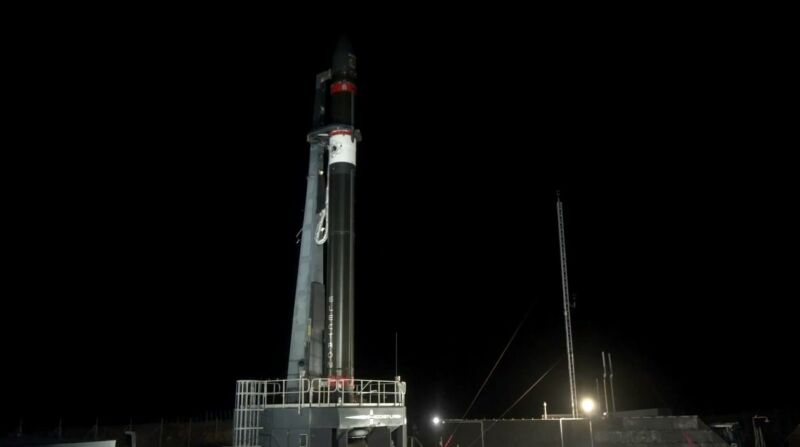
Rocket Lab said Monday that it is continuing to review data from the flight of its 20th Electron launch, which failed to reach orbit after lifting off on Saturday, May 15.
In a news release on its website, the US-based company said the rocket experienced an anomaly "almost three minutes" into the launch of two BlackSky Global satellites, after the rocket's first and second stages had separated.
"Preliminary data reviews suggest an engine computer detected an issue shortly after stage two engine ignition, causing the computer to command a safe shutdown as it is designed to do," the company said. "The behavior had not been observed previously during Rocket Lab's extensive ground testing operations, which include multiple engine hot fires and full mission duration stage tests prior to flight."
Rocket Lab's mission control, based near the New Zealand launch site, continued to receive "good telemetry" after the second stage's Rutherford engine shut down. As a result, the company's engineers believe they have plenty of data to perform a comprehensive review into the anomaly. The US Federal Aviation Administration will assist in the investigation.
The failure comes less than a year after Rocket Lab lost another Electron mission. This "Pics or it didn't happen flight," the 13th overall Electron mission, failed last July due to a faulty electrical connection in the second stage. Rocket Lab was able to characterize and fix that anomaly relatively quickly. Its next mission launched just eight weeks later. Now, the company will seek to recover quickly, once again.
"We deeply regret the loss of BlackSky's payload and we are committed to returning to flight safely and reliably for our customers," Rocket Lab's founder and chief executive, Peter Beck, said in the news release.
Rocket Lab has a good reputation in the launch industry, but the two failures in relatively quick succession come at an important time for the company. Competitors such as Virgin Orbit and Astra are beginning to demonstrate small-satellite launch systems, and others such as Firefly, ABL Space, and Relativity Space may also launch their vehicles later this year for the first time. That means there will be more competition for small-satellite launch contracts, and customers will factor in reliability.
Moreover, Rocket Lab had been attempting to pivot beyond just small-launch service. With earlier statements such as "Rocket Lab solved small launch with Electron," Beck has sought to move into new areas such as first-stage reuse, as well as the development of a much larger rocket called Neutron that will compete with SpaceX's Falcon 9 rocket. There is the additional complication of public oversight, too. In March, Rocket Lab announced plans to become a publicly listed company on the Nasdaq via a merger agreement with Vector Acquisition Corporation.
Despite the setback on Saturday, the company did make some progress on reusable launch. Rocket Lab recovered Electron's first stage for just the second time after a launch. Following the stage's recovery onto a ship and a quick inspection, Beck said the booster's new heat shield protected the first stage from atmospheric heating and that the engines remained in "good condition." The company will now put them through hot-fire tests for further analysis. Rocket Lab remains on track to conduct a third recovery mission later this year.
However, none of these bigger plans will ultimately matter if Rocket Lab cannot fly Electron frequently and reliably. Beck surely understands this.
reader comments
145